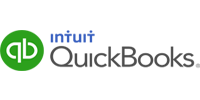Accounting checklist: To do financial task for small business.

[vc_row][vc_column][vc_column_text text_larger=”no”]
Accounting Checklist for Small Business
Why create an Accounting Checklist for To-Do Financial Tasks?
Managing your finances can be a huge task if not done systematically and efficiently. This brings in a need to create a realistic planned budget, attending to the financial tasks will help you fix issues such as cash shortages and inventory discrepancies, by creating an daily accounting checklist of these tasks you would easily accommodate your accounting tasks and track down your activities. To design a well-equipped layout for the checklist of your important tasks, it is essential to gain an understanding of the financial health of your business by evaluating the fiscal health through the receipts, sales orders, bills, invoices, income statement, balance sheets, etc.
These daily accounting checklists will keep you attuned with all the preparation of tax returns by streamlining the documents required to prepare these tax returns.
Daily Accounting Tasks:
Keep a Check on Cash Status: Keep a track of the finances that you have saved by syncing your bank and credit card feeds, tracking receivables and payables will determine your financial health by analyzing the cash flow.
Weekly Accounting Tasks:
Keep a Record of Transactions: Keeping a robust record of all the transactions ranging from billing customers, paying vendors and any transactional activity is advisable to be kept in check. Using accounting software instead of Excel Sheets will make the task more streamlined and systematic by offering you the control and added benefits.
Documenting File Receipts: Documenting all the file receipts and keep them safe such as making copies of invoices, paper checks receivables, cash payments, credit card statements, etc. The income statement and profit and loss statement summarizes your revenue and expenses. Sorting these files and documents alphabetically, sorted by payroll date and a bank statement file sorted by a month that helps in ease of access.
Review Unpaid Bills From Vendors: Almost every business has an unpaid bill that has to be checked to make payment due date and the amount due that has to be kept updated. You can choose to avail the maximum benefits that vendors discount can offer.
Review Projected Cash Flow: Estimate how much cash you may need in the coming week or month that ultimately helps you to reserve the cash and save up to that amount to distribute it amongst paying bills, suppliers, employees, etc. enabling you to make well-informed decisions.
Monthly Accounting Tasks:
Balance Your Business Checkbook and Inventory Status: Reconciling with your checkbook or cash makes it easier to access the errors and rectify them. Ensure proper stocks in the inventory by reordering products for the pitching in the sales. Reviewing the old receivables gives you a quick overview of the customer payments made in the fiscal year.
Process or Review Payroll and Approve Tax Payments: Payroll management is highly necessary to ensure lawful processing that adheres to the federal, state, and local regulations. It is vital to withhold, report, and deposit the applicable income tax, social security, etc. The accuracy has to be maintained throughout the payroll services.
Review Actual Profit and Loss vs. Budget and vs. Prior Years: This helps in analyzing how much you have earned and your added expenses over the years, helping you to identify the variables, etc.
Review Month-End Balance Sheet vs. Prior Period: This provides an insight as to the management of assets and liabilities of your business.
Quarterly Accounting Tasks:
Reviewing Revised Annual P&L Estimate: Evaluating the assets, liabilities, cash influx, difference between the revenue and expenses helps you identify the troubleshooting issues to improve the sales margins.
Reviewing Payroll Reports and Sales Tax: It is necessary to adhere to the state laws regulating the sale taxes to avoid serious penalties. The US Small Business Administration can help you determine the tax laws regulating sales.
Computing Estimated Income Tax: The IRS and state regulations oblige you to make payments for estimated income taxes.
Annual Accounting Tasks:
Fill out IRS Forms W-2 and 1099-MISC: After accessing your inventory and past-due receivables, you are required to report the annual income of your full-time employees (W-2) and other independent contractors associated with the business. The deadline to file these forms is February 1st. This includes mailing the copies of the tax forms of the employees no later than February 28th. It is imperative to note that form 1099 is not to be filed for any contractor earning less than $600.
Approving Annual Financial Reports and Tax Returns: Before making the final submission, it is mandatory to skim through the annual reports made to access its accuracy, checking whether all the documents have been filed as per the form’s requirement, and correcting last-minute errors. In case, the IRS finds an error, it may reject it and charge penalties and interest after a thorough auditing.












